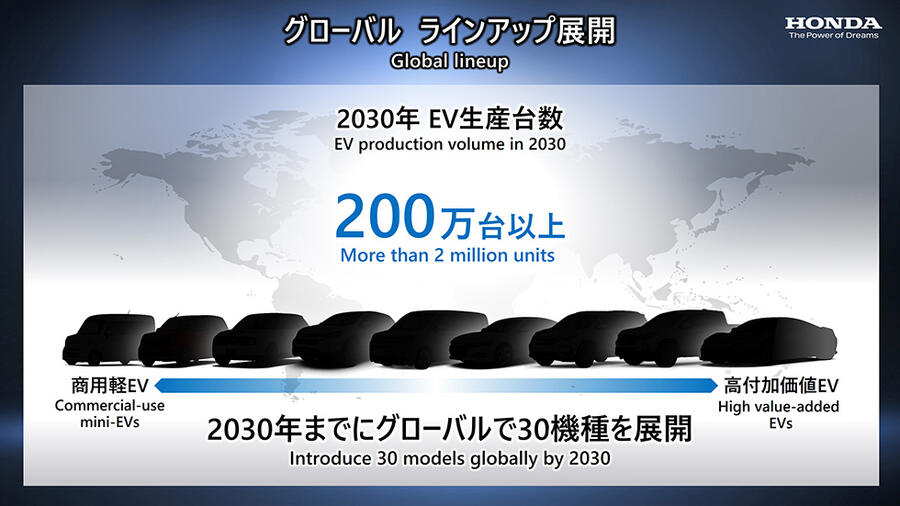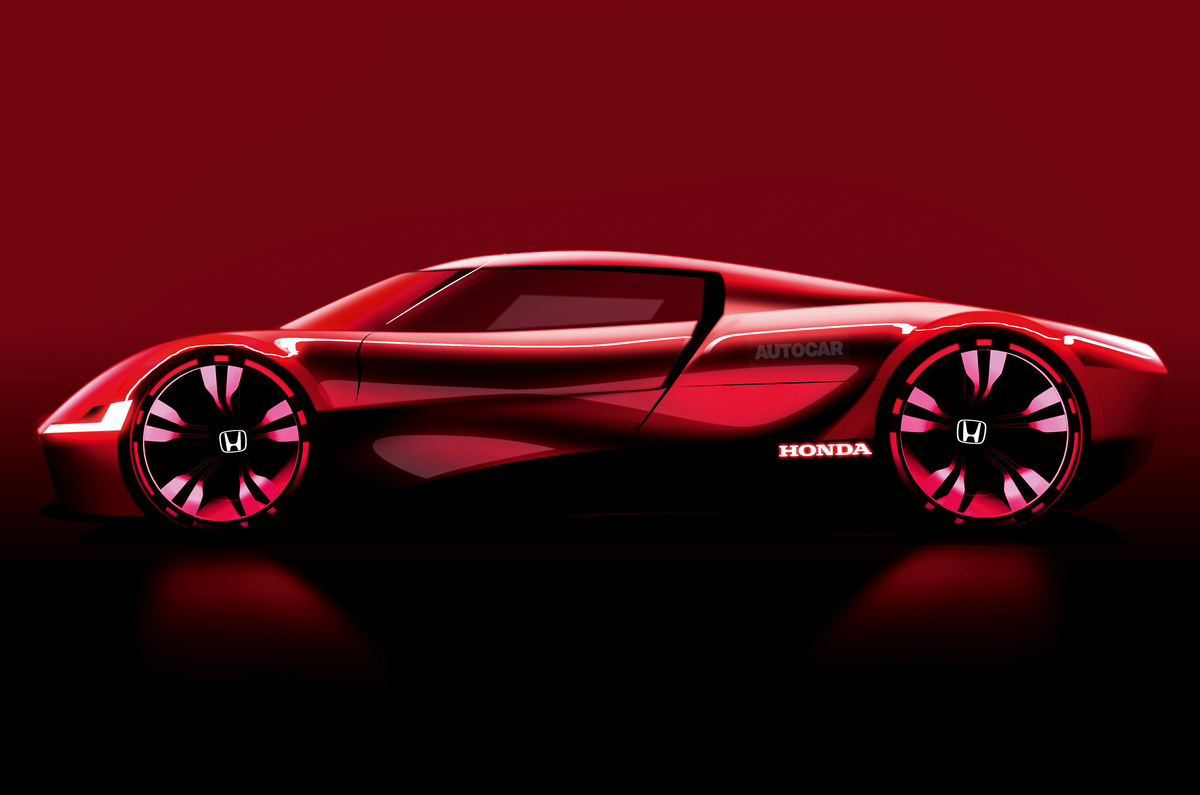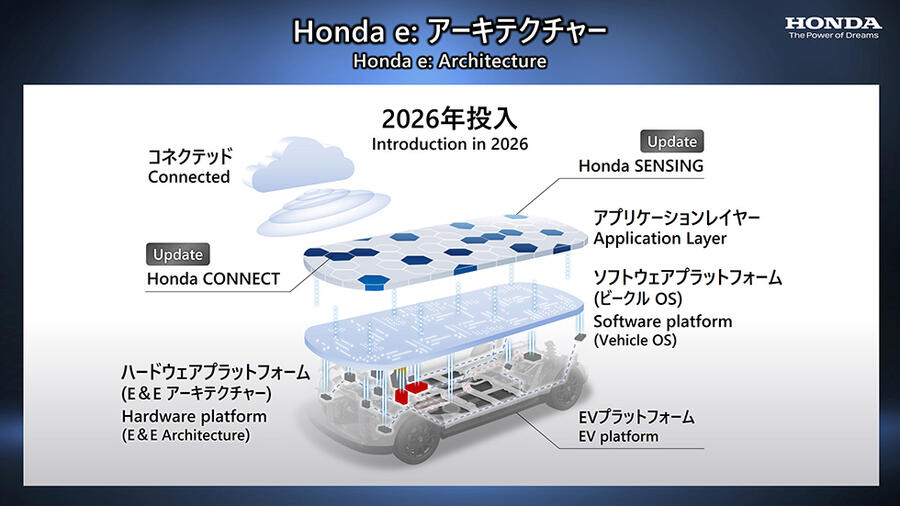The Honda NSX will return as a supercar flagship for a 30-strong line-up of electric vehicles that Honda will launch as part of an ambitious £31 billion electrification strategy.
The supercar will be part of Honda's commitment to launching 30 new pure-electric vehicles globally as part of the strategy.
The Japanese firm has outlined its shift to electrification, pledging to achieve annual EV production volumes of more than two million units by 2030, ushering in solid-state battery technology and launching a pair of all-electric sports car flagships.
Honda aims to achieve net carbon neutrality by 2050 but says "a multi-faceted and multi-dimensional approach" to electrification is needed, "not a mere replacing of engines with batteries".
To this end, it will allocate a portion of a committed eight trillion yen (£49bn) R&D budget to developing hydrogen powertrains and battery-swapping hardware as a means of facilitating the phase-out of combustion powertrains over the next 10 years. Some five trillion yen (£31bn) is reserved exclusively for "electrification and software technologies".

Honda has also given initial details of its rapid-fire global EV roll-out in the run-up to 2030, which most shockingly looks to include an all-electric successor to the Honda NSX supercar and a new grand tourer flagship.
"Honda always has a passion to offer fun for its customers," the firm said, giving no details of the new sports cars but promising they will continue to offer a "sports mindset and distinctive characteristics".
The Honda NSX is currently in its third generation as a 573bhp hybrid with a mid-mounted V6 and will bow out of production at the end of this year. This latest announcement is the first official indication that Honda plans to remain in the supercar segment as it transforms its business.
Honda is the latest Japanese brand to commit to offering dedicated sports cars in the electric era. Toyota has previewed a lightweight two-seater in the vein of the MR2, Lexus is working on an EV follow-up to the LFA, Nissan recently showed the drop-top Max Out concept and Subaru revealed a 1073bhp 4WD EV racer called the STI E-RA.














Join the debate
Add your comment
How did honda get so far behind, still next to nothing till 2023. They've pulled their only Hydrogen car from production after total failure but it cost them dear.
Hope they put some of that shed load of money into a design studio and some talented designers...
Some of this was to be done in Swindon, but Brexit killed it off.
Honda were at the tipping point of having to decide if they were going to invest or not in EVs for Swindon, but couldn't tell what deal Brexit would be. Would they be able to make a return on that investment?
They decided to instead invest in Japan where costs are high and there's labour shortages. Even against that, the UK couldn't win because of Brexit.
Brexit cost Brits their jobs.
No Honda manufacturing in EU either, so cannot see why you blame Brexit.
An EV NSX is right up my street, though I much prefer the original's more elegant styling.
MrJ,
the Swindon plant was Honda's EU plant.
Brexiteer = the combination of ignorance and conceit.
Honda closing their plant in Swindon was nothing to do with Brexit and everything to do with a range of cars in Europe that nobody was buying.
Hi Andrew, well it is true they have two facilities in Belgium, but in fact one of them is actually a logistics centre, and the other no longer assmbles cars and is only a parts manufacturing centre. So i would suggest that it is a bit more subtle than it appears at first sight. I think many people would reasonably refer only to plants manufactruing whole cars in this context, although your observation is also valid. I would note it also only took me 2 minutes to check that fact on Wikipedia.
1.Honda itself said it was not related to Brexit.
2.In 2017 the import Tariff on importing Japanese cars to the EU was scrapped
3. Honda sales in Europe had been declining In Europe consistently from 312000 in 2007 to 123,000 in 2019 when the closure was announced.
That was another 2 minutes work
I correct myself in 2017 it was agreed to phase out the import tariff over 10 years.
I wouldn't confuse Andy1 with facts it confuses him
ZOMG! Honda was going to build "some of" the NSX at Swindon! You should tell Honda!
Some remoaners still don't understand why Japan are pulling out of europe, do some research on the France and Germany's cars for cheese deal, look it up and understand it was the EU that made it possible for Japan to manufacture at home and not pay tarrifs.
The EU cost jobs in the UK, stop ignoring facts.